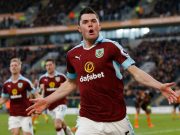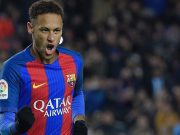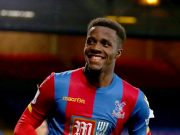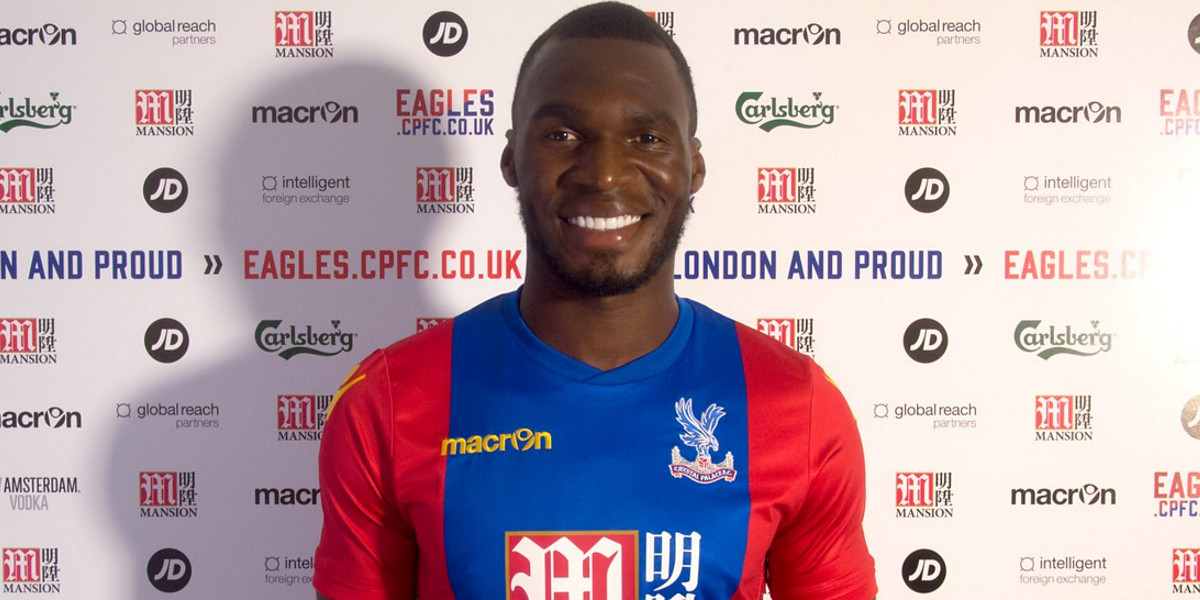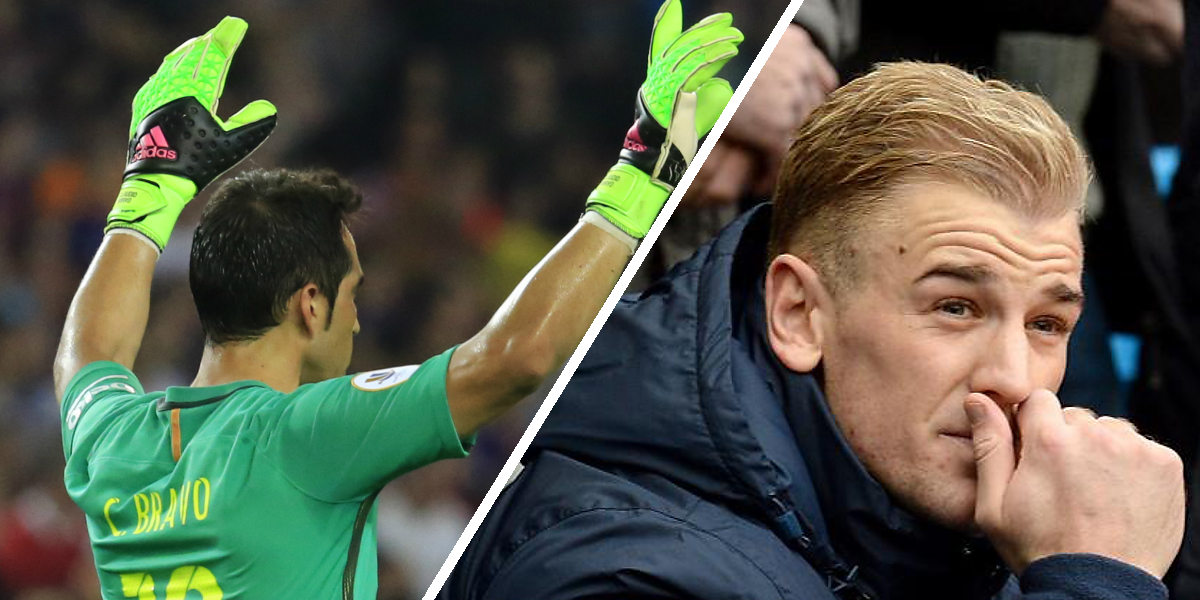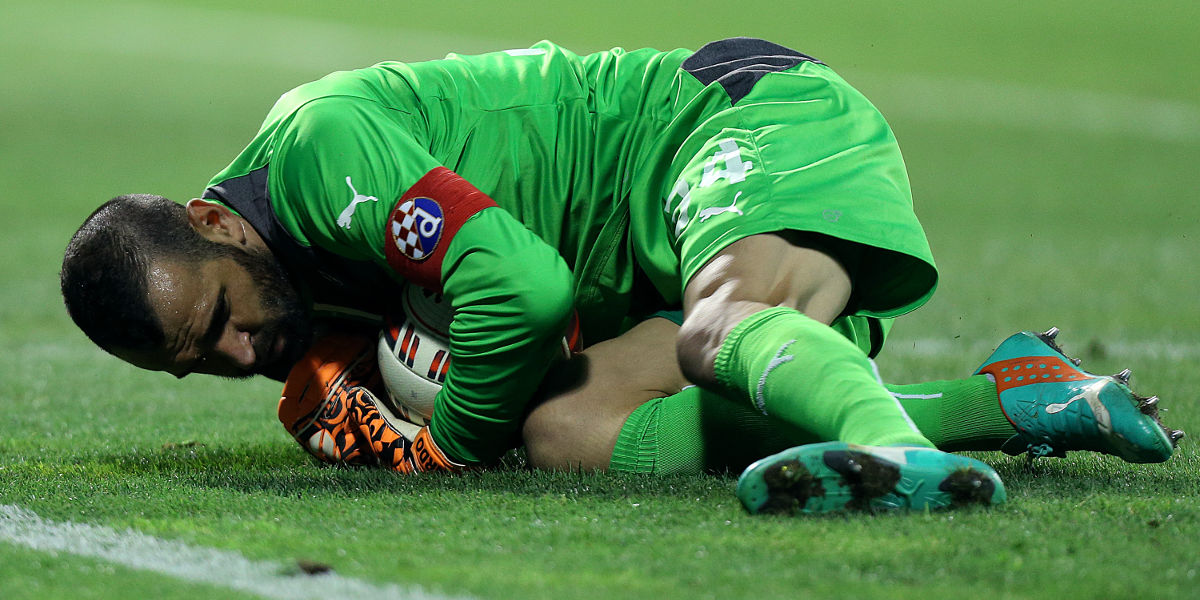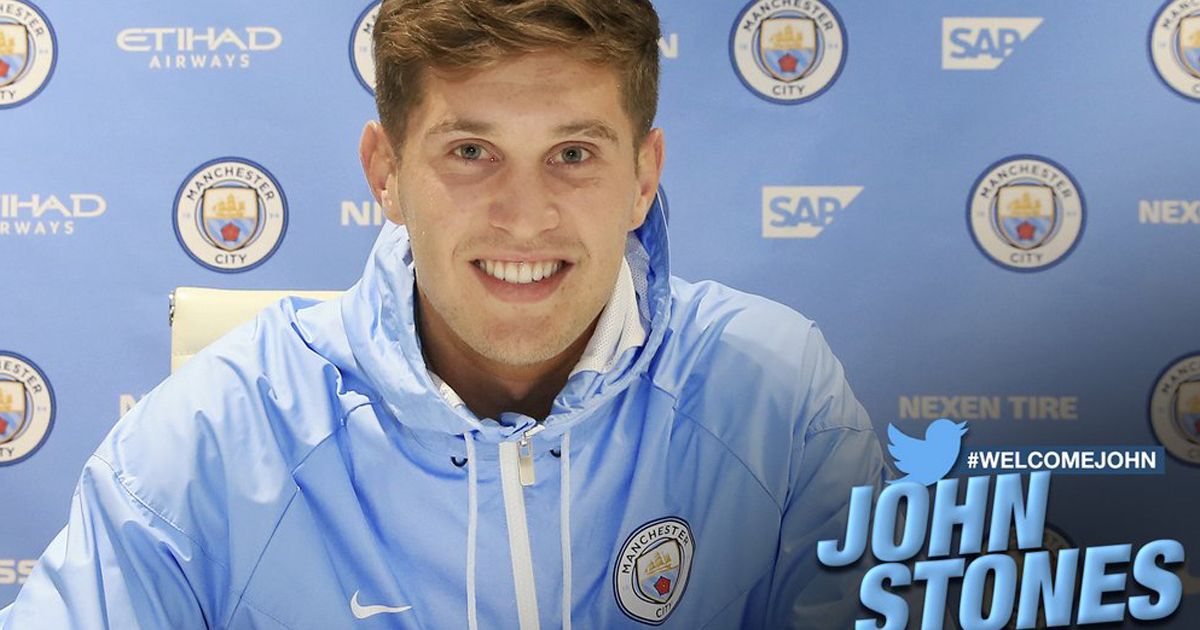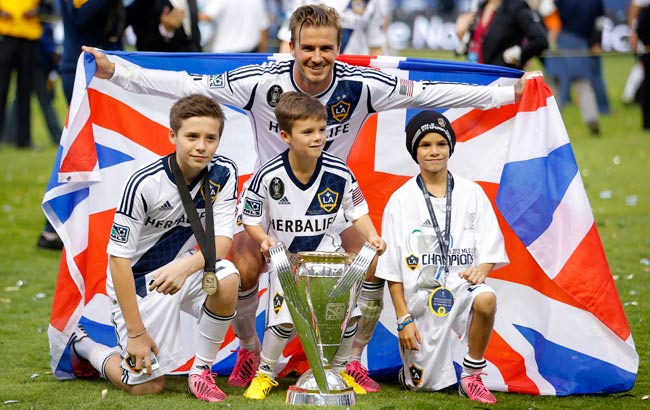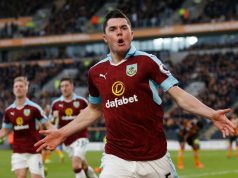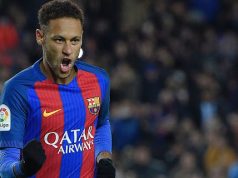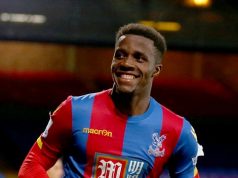A BRIT OF ALL RIGHT… Beckham celebrates one of many trophies with his sons
By STEVEN HOWARD
FIRST, Alex Ferguson. Now David Beckham.
How are we going to survive without them?
And how come they both chose to go at the same time? Probably some lovers’ pact…
Beckham was the only person in football who got more column inches than his former Manchester United boss.
In fact, he made headlines for doing nothing other than being David Beckham.
He was also younger, sexier and, yes, he and Team Beckham worked extremely hard at keeping him in the public eye.
I gave him a fair amount of grief down the years as the Golden Generation won nothing and became increasingly tarnished.
Mainly out of sheer frustration that one of the strongest group of players in the world for six or seven years never matured into the real deal.
The bottom line, though, is that he was a great football player, who made the most of his ability.
And he was a good bloke. And an even better dad.
Now you wouldn’t mind that on your tombstone.
He also had the killer combination of great charm and a tremendous work ethic.
Only the other day I was reading a quote from Ferguson about Beckham.
It was along the lines of how he hadn’t been born with that magic wand of a right foot, that he got it because he stayed longer on the training ground and worked harder than anyone else.
It took me back to the 2000 Euros in Belgium and Holland when Beckham spoke of how Eric Cantona had been the greatest influence on his career.
How he couldn’t believe that a player with such class and ability went back out after everyone else had finished training to further hone his skills.
It was a pattern Beckham would follow and continue for the rest of his playing days.
And one that would serve him well at Old Trafford in October 2001 when his last-minute free-kick against Greece earned England the draw that sent them through to the 2002 World Cup in Japan and South Korea.
Out there in the summer, Becks’ reception from the locals was the nearest thing to Beatlemania. He really was like royalty.
What a long way the kid from Leytonstone had come.
Yes, he was a good player but even he would admit there were far better.
He was on a middle rung alongside Steven Gerrard and Frank Lampard, below an elite including Stanley Matthews, Tom Finney, Bobby Charlton, Bobby Moore, Gordon Banks, Alan Ball, Gary Lineker, Gazza, even Ashley Cole of the current side.
And the lost and lamented Duncan Edwards.
But few have ever enjoyed playing for England as much as him. Pride and passion were his middle names.
In fact, he said it so often you sometimes wanted to shout: “Give it a rest, Becks!”
It was a job he took extremely seriously. But, at times, the gravity was undermined by all the different hairstyles, the sarongs and the other stuff. It was a self-obsession that, when continued into his thirties, made him look a little ridiculous — and not just figuratively.
But, of course, it was a money- spinner — the making of Brand Beckham — and part of the reason why he is worth £165million today.
Of course, he made his name at Manchester United, where that lovely right foot and a really finely tuned engine within a wonderful pair of lungs made him an instant success along with Ryan Giggs, Paul Scholes and Gary Neville — the kids with whom you never win anything.
His first real exposure for England came at France 98, where, incredible to think now, he was overshadowed by the 18-year-old Michael Owen.
He came home in disgrace after being sent off against Argentina and was subjected to vilification, including the monstrosity of his effigy being hanged from a lamp-post in his native East End before his reappearance against West Ham.
He never deserved any of it. It was a massive over-reaction from a country looking for a victim — and spoke volumes about the sort of place England as a whole was becoming.
But Beckham was not victim material, with balls big and golden — as his wife would later testify when she revealed her nickname for him.
He also had an inner steel and determination that both Steve McClaren and Fabio Capello would be forced to respect. First, when he won an England recall some two years after McClaren first sensationally dropped him.
Second, when he fought his way back into the Real Madrid team to win La Liga after Italian sergeant major Capello said he would never play for the club again.
He was also never afraid to single out journalists he felt had overstepped the mark with personal references by singling them out at Press conferences. Not many ever did that.
Beckham had the misfortune to be lumbered with me as his ghostwriter when The Sun signed him up just before the 2000 Euros.
He was without doubt the easiest footballer I have ever worked with. Always available to take a call, always where he said he would be at the appointed hour, he was eternally enthusiastic and never afraid to tackle subjects many other players would have steered clear of.
Not long after, stand-in England boss Peter Taylor would take the momentous decision to appoint him England skipper. It was a move that would pay enormous dividends not long after when Sven Goran Eriksson took over the reins.
For a while, he carried England. The campaign that ended at Old Trafford and qualification for the 2002 World Cup the best spell of an international career that saw him win 115 caps.
Sadly, neither he nor Owen were fully fit that summer, which led to the accusation of there emerging a caps-for-the-boys culture under Eriksson. As the Golden Generation’s poster boy, he suffered for England’s failure to get past the quarter-finals at major tournaments.
I was one of the critics who found it demeaning to players such as Charlton and Moore that Beckham should pass their England appearance marks on the back of free caps being handed out at the end of his career for little more than 15 minutes’ work.
I also never quite understood his move to America when he still had so much to offer European football.
Then again, he has always had a love and affinity with children and, by being in America, he was a huge inspiration to a young country adapting to a new sport.
Now, at 38, it’s all over. Him and Fergie gone within nine days.
What on earth are we going to write about now?


